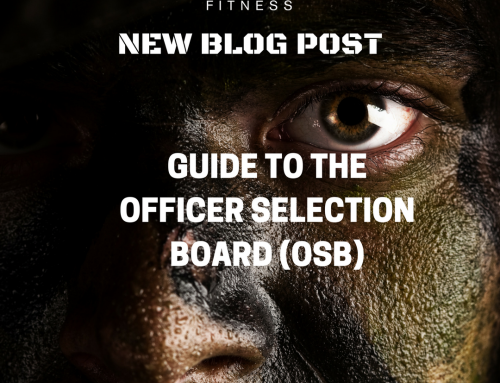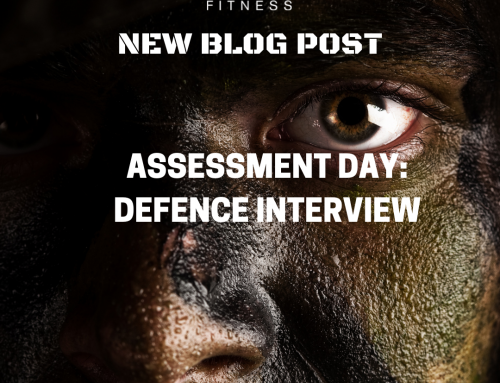Note: Some content in this article can also be read in the Defence Interview article. You will often find that half the questions you are asked in the defence interview will also be asked by the Psychologist. The psychologist will want to gauge your answers for themselves.
The two most important components of the Assessment day are the Psychological and Defence Interviews. While these two interviews cover a lot of the same topics they do have different objectives from a recruiter’s point of view. In this blog post we will cover the Psychological interview and everything you should know to succeed.
The majority of questions are very common and easy to find the answers to. Almost all of the information you need to pass the Assessment day is provided on either the Defence Jobs Website or the Website for your chosen service (Army, Air force, Navy). The following questions are almost guaranteed to be asked in some form.
Before we start the with what you should know here is our biggest tip: RESEARCH AND LEARN AS MUCH AS YOU CAN. Our blog posts will help you gain an understanding about what information you should learn, but what happens if the interviewer decides to test you and asks you to go into more detail/elaborate? If you have not sufficiently prepared then you will be unable to answer them. The more you read through all the of information available and learn about defence the more comfortable and confident you will be talking about it in an interview.
Remember to read our other Assessment Day blog posts:
Standard Questions
(Skip to Psychologists Questions below if you are comfortable with these questions)
- What is your preferred job role?
- Know the job definitions. i.e. Infantry: The role of the Infantry is to seek out and close with the enemy, to kill or capture him, to seize and hold ground, repel attack, by day or by night, regardless of season weather or terrain.
- Talk to someone who is currently serving in your preferred job role, this can be arranged via DFR before the assessment day.
- Get an understanding about their typical work day, what the biggest challenges are and what are the more enjoyable aspects of the job.
- It is this information and understanding that you can rely upon to formulate your answers during the defence interview. For example “The role of the Infantry is {standard Defence job definition}, however I spoke to CPL Davies from 2 RAR who explained the role as being like…”
- Why do you want to join the ADF?
- Obviously this must be an answer that is personal to you. Ensure that you develop your answer before the interview and are able to describe your reasoning professionally and effectively. A large number of candidates always forget to develop answers for the most obvious questions. Do not be that person.
- Key Points:
- Challenging (physically/mentally)
- Not Regular 9-5 Job
- Skills you can learn
- Lifestyle
- Service
- Pride
- Career Opportunity
- Example Answer: Joining the ADF is something that has been very appealing to me for a long time, more so as I have become older. I am attracted to work in the ADF for a number of reason; I see the career progression a career presents, the service I can give, all the skills I can learn, and the experiences that can help me grow as a person. Above all I find the lifestyle the most appealing factor, not being a regular 9-5 job, the mixture of a challenging physically active lifestyle and overcoming mental challenges that come with training and working in the ADF.
I have developed my understanding of the ADF through talking with friends, family and doing my own research. This has allowed me to gain a good idea about what I am applying to be a part of and what I could be committing to.
- What are the values of your service?
- How much do you get paid? – Know pay for both during and after training
- Answer: Defence Jobs Website or the Salary Scales
- What will be your Initial Period of Service?
- How long do you have to sign up for?
- Answer: Defence Jobs Website
- What is a ROSO? (Return of Service Obligation) and What is IMPS? (Initial Minimum Period of Service)
- How long is your Basic Training? and Where is it?
- Answer: Defence Jobs Website
- OR: 80 Days, Kapooka, Wagga, NSW
- Officer: 6-7weeks ICT (Initial Cadet Training), RMC/Majura, Canberra
- What will Basic/ICT be like?
- Answer: Defence Jobs Website
- Obviously no phones, busy days, learning the basics of soldiering.
- You can find a typical day schedule online – 0600 Reveille – through to – 1000 lights out.
- What is your IET (Initial Employment Training)? Where is it? For how long? What will it be like? What Corps will you be a part of?
- This is your Corps specific Training, know all the details about it and what it will be like
- ORs do this after Kapooka, Officer entry after 18months at RMC.
- This is your Corps specific Training, know all the details about it and what it will be like
- Where will you be posted?
- Answer: Defence Jobs Website
- Answer: Service Website (Army, Air force, Navy)
- Regardless of your job learn where all the bases around Australia are, learn what units (specific to your job) are located there.
- E.g. for an Army Infantry candidate your answer might look like –
- “After the IMT and IET I could be posted to any infantry unit across the country, 1st Brigade at either Robertson Barracks in Darwin or RAAF Williamstown in Adelaide to 5RAR or 7RAR. To 3rd Brigade in Townsville with 1 RAR, 2 RAR (Amphibious), or 3 RAR. To 7th Brigade at Enoggera in Brisbane to 6 RAR or 8/9 RAR. Where I get posted largely depends on where Army needs me, I do get to note which unit I would most like to be posted to during IETs but i recognise that this is only taken into consideration and not guaranteed.
- What are you Strengths?
- Good Answers: Willing to work hard, get along with people, proactive, quick learner, loyal, and organised
- What are you Weaknesses?
- Good Answers: I spend too much time working on tasks trying to get them right, or I am particularly hard on myself when I don’t meet my own high expectations.
Psychologists Questions?
- How did you enjoy school?
- Answer:
- “I really enjoyed certain aspects of school. English and Sports were the subjects that I responded best to. I have built a lot of strong friendships and have taken a lot from it.”
- This is a common trap for candidates to talk about the negatives of school, this is the wrong approach. Do not talk negatively about teachers, other students, learning, doing assignments etc… If you have not got the best track record at school then spin in around into a positive. For example:
- “I haven’t done as well as I would have liked academically. I have always been more attracted to being outside with mates and working on my own projects.” You can then talk about a hobby which you spend time working on.
- Answer:
- How do you feel about living away from home?
- Answer: Fine.
- Discuss being self-reliant, being able to cook, iron etc…
- Mention that you look forward to moving onto that part of your life and embracing the challenge.
- How well do you get along with your family?
- Answer: Be honest. Not everyone has the best home life, just remember to word your answers correctly.
- Saying that you don’t care about your family at all is not the correct approach. Instead mention that you have a difficult family and home life but constantly work on improving it because family is important.
- What do you think about killing someone?
- Answer: “Its not something that I want to do. Unfortunately its a possibility when working in the Australian Defence Force. I’ve given it some thought and would do what was necessary to look after myself and those around me.”
- What if you were ordered to do something you didn’t want to?
- Answer: “Upon joining I recognise that I may be required to undertake difficult tasks and will be required to complete all lawful orders to the best of my ability.”
- If you are in high places do you ever feel like jumping off?
- Answer: Be honest.
- Do you ever hear voices in your head?
- Answer: Be honest.
- Have you ever done drugs?
- Answer: “No, I really don’t like the idea of them and don’t see the point at all. I am glad defence have a zero tolerance policy”
- Do you drink alcohol?
- How often do you drink? Do external factors have an effect on how much you drink? i.e death of a loved one, job stress etc…
- What does your day usually consist of?
- Answer: The psych is gauging how motivated you are. They want to hear that you get up each day and be productive. If you are not employed and don’t go to the gym, do extra curricular activities (camping, fishing, making bmx videos with friends, anything really) or participate in a team sport than you should seriously consider putting your application on hold until you have something productive and beneficial to talk about.
- What do you do to deal with stress?
- Answer: “I prioritise and get through tasks one by one. It helps me feel accomplishment that I have achieved what I have as quickly and effectively as I can”
- Be honest. The wrong answer is along the lines of “I can’t handle stress, when things get hard I have to stop and get away.”
- What have your previous jobs been like? What has your role been?
- Answer: Be honest. Remain positive about what you enjoyed about each role. Talk about working with others and doing the job right.
- Think about reasons as to why you left or why you want a new job.
TOP TIPS
DON’T LIE! You’ll be caught out in a lie very quickly!
Be absolutely honest in your answers.
Don’t be arrogant, be confident. Maintain eye contact.
Be prepared to write an essay without notice.
Don’t be rushed the answer the question. Think about what you should say, formulate the main points of your response and speak clearly.
If you are unsure then say so or ask for the question to be repeated or explained further.
If you are able to formulate detailed answers for all of the above questions then you are doing well. Remember the purpose of the Assessment Day is for a defence staff to gain a better understanding of who, how suitable and how motivated you are to join and be a part of the Australian Defence Force. If you have any questions than please feel free to Contact Us!
Remember to read Part 2: Assessment Day – The Defence Interview
Note: The advice given throughout the Recruitment blog series is based of the ADF Fitness experience and may not be relevant to you. Our experience with the recruitment process, which occurred over different periods, will not necessarily match your recruitment process. This should not be read and used with any expectation that you will pass the recruitment process. By reading this blog post you agree to not hold ADF Fitness responsible. We disclaim any liability from and in connection with content on this blog.
Joining the ADF? We can help
Programs to suit all levels of training to help achieve your fitness goals and achieve tangible results












Get in Touch